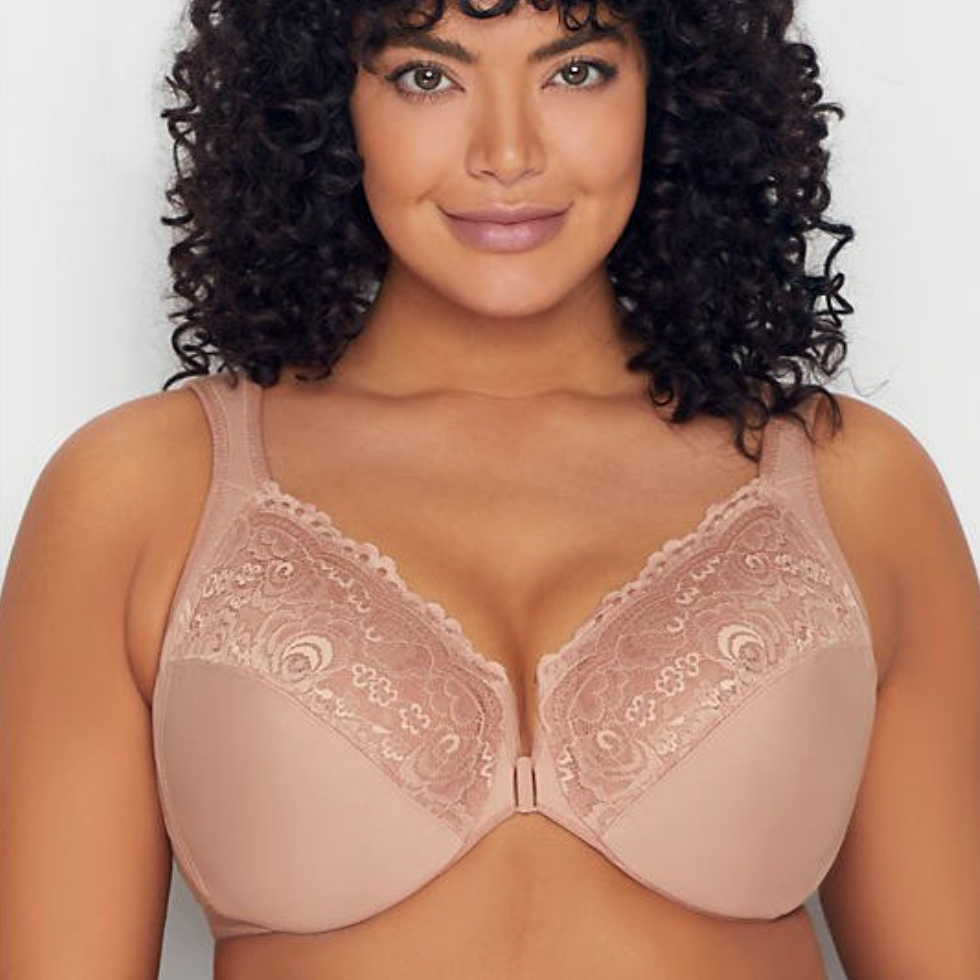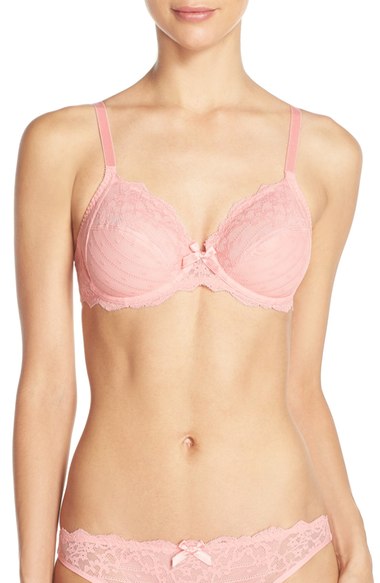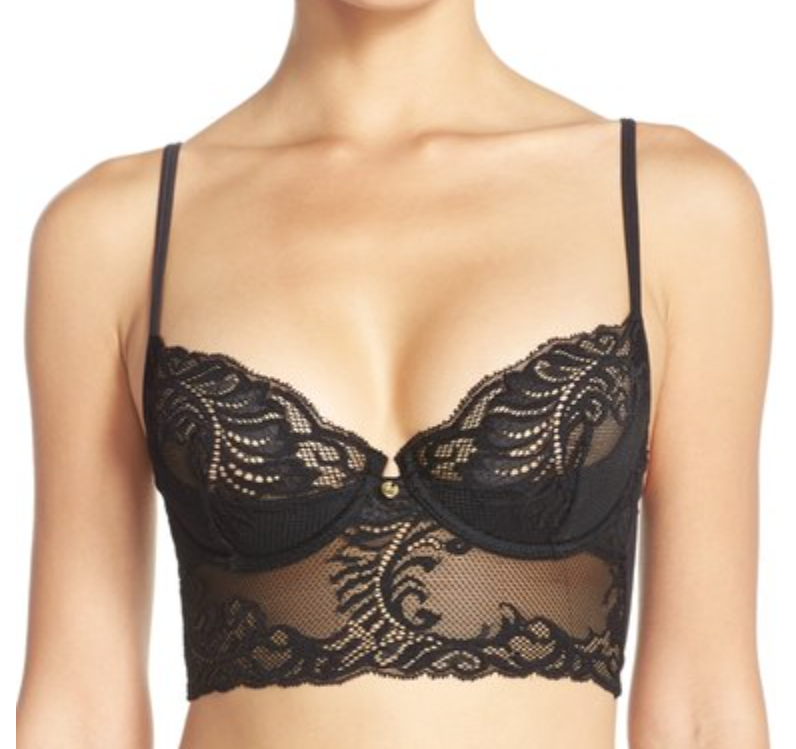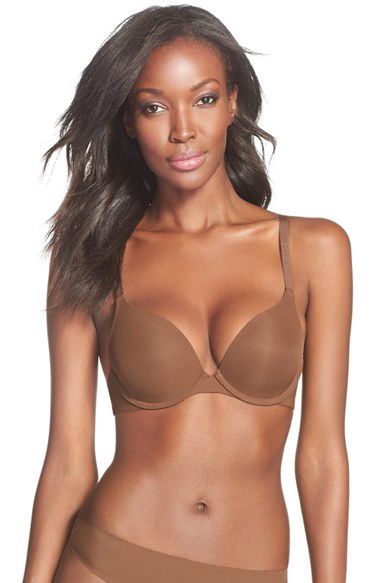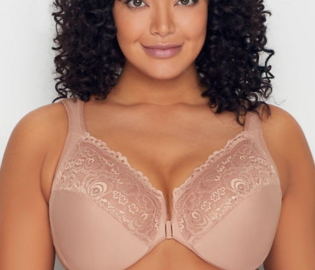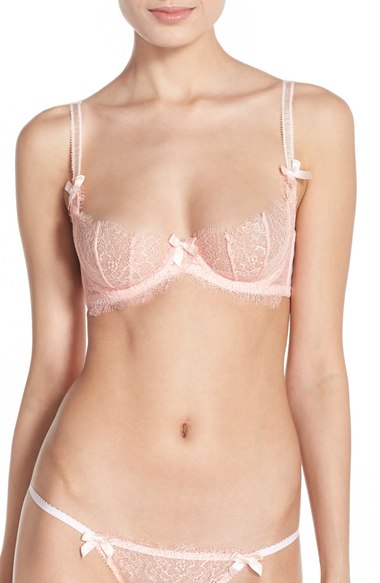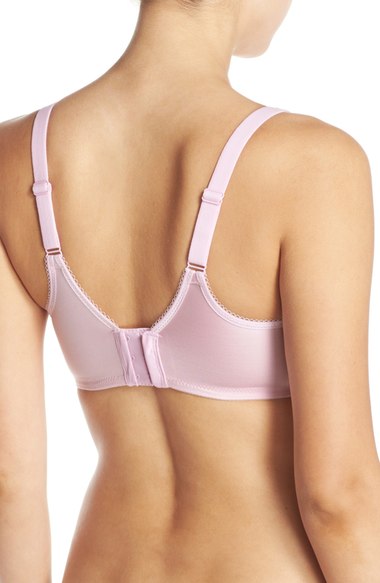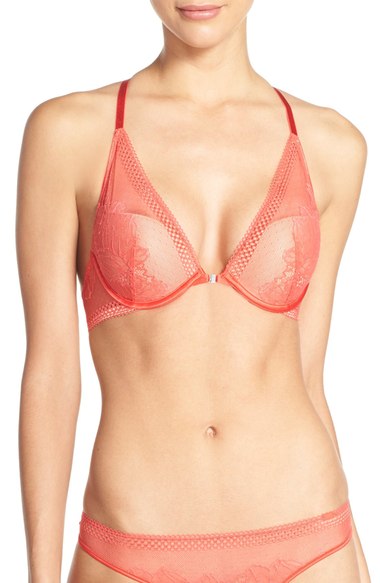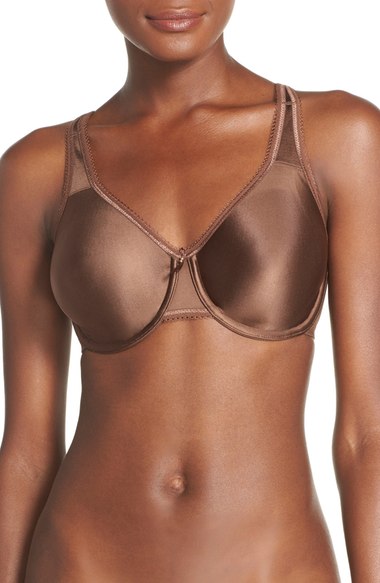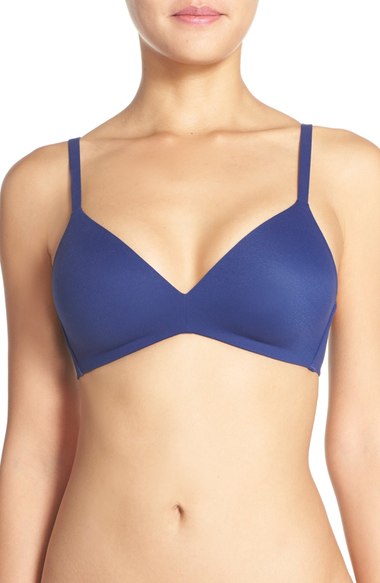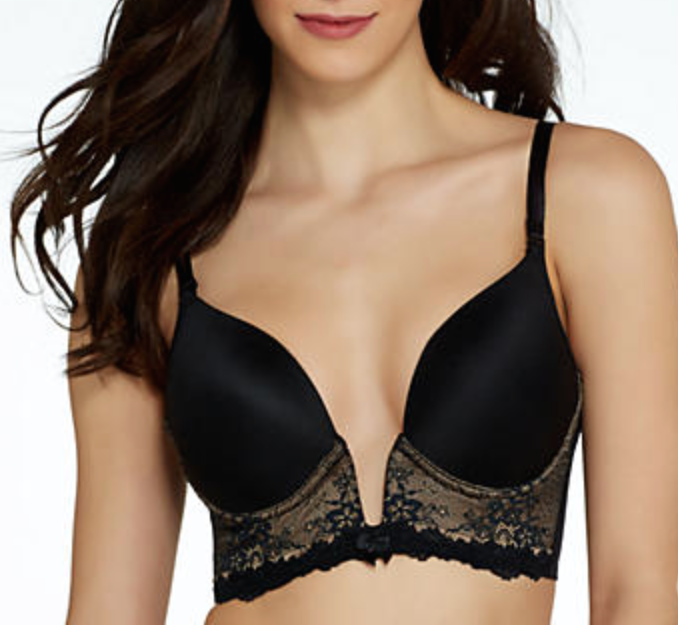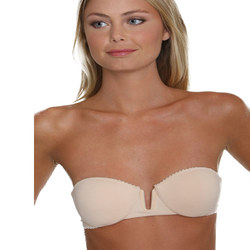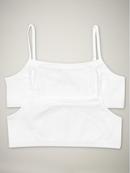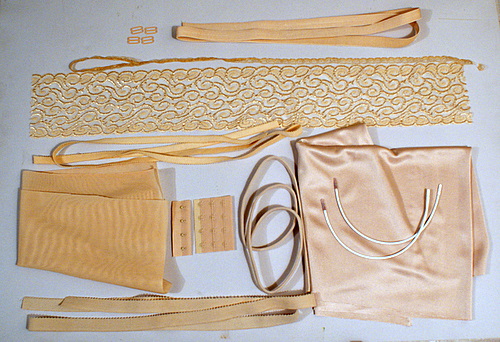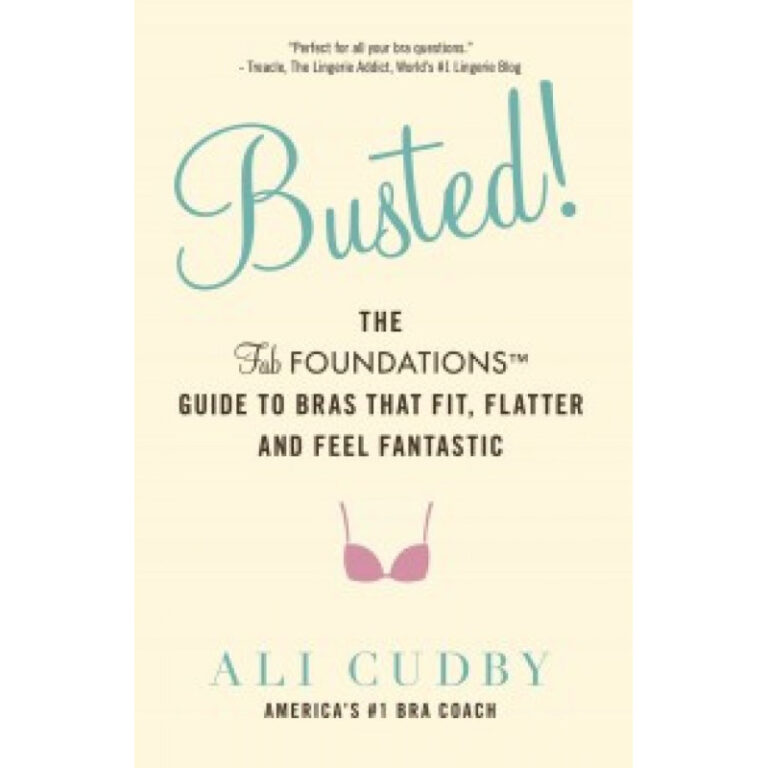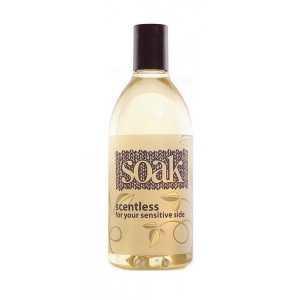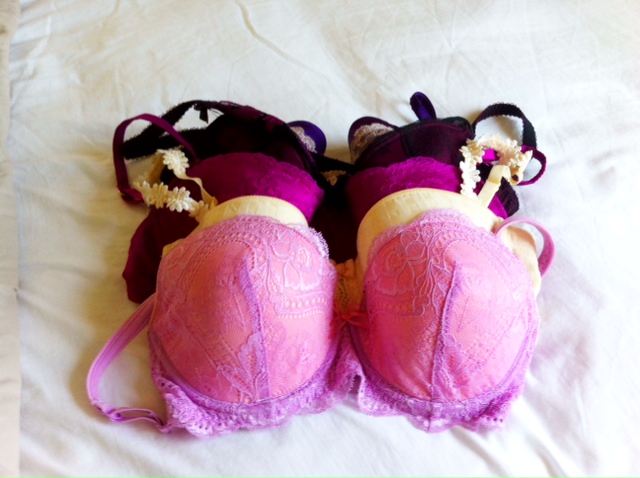Bra Fit Issues? Know Your Bra Vocabulary
Do you have any bra fit issues? How do you explain your concerns to a bra fitter, or to a customer service representative at a department store or lingerie retailer?
Sometimes the best information about how well a particular style or bra brand fits is found by reading customer and lingerie blogger reviews. But not everyone uses the same bra industry terms or references.
Knowing what you want in a bra begins with using the correct terminology. That way you can explain your needs, and get any problems solved related to construction.
What words and definitions should you know? Here’s an alphabetical list of some standard terms and why they’re important when it comes to potential bra fit issues:
Band: This is the part of the bra that keeps up your breasts. According to experts, it is meant to hold 80% to 90% of your breast weight. Bands are typically made of flexible, elastic materials. They come in multiple widths, can be cut as a straight line, or curve up in the center (better for those with higher stomachs). Some bands hook up in front, too. Longline bras have bands that extend from a few inches all the way to your waist.
Chantelle Rive Gauche Available in Bands 32-44, Cups C-H via Nordstrom Natori Feathers Longline Bra Available in Bands 32-36, Cups B-DD via NordstromBoning: Can be added underneath the arms onto the side wings of the band to offer extra support and structure. Many larger-busted customers prefer bras with this design feature.
Cups: Can be wired, non-wired, cut and sewn with multiple seams, padded, or machine-made (“molded” by a machine). Some styles add an inner “side sling” to shape the breast tissue and bring it forward. Cup shape determines how breasts are lifted, and the direction they’re projected. In general, the more seams in a cup, the better support it provides.
Nubian Skin Essential Underwire Plunge T-Shirt Bra Available in Bands 30-38, Cups B-DD via Nubian Skin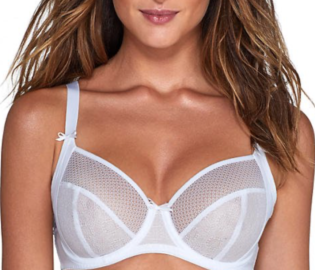 Freya Hero Side Support Plunge Bra
Available in Bands 28-38, UK Cups DD-K
via Bare Necessities
Freya Hero Side Support Plunge Bra
Available in Bands 28-38, UK Cups DD-K
via Bare Necessities
Embellishments: These can be anything and everything you can think of to add to a bra; bows in the center, lace bits along the edge or cups, fancy strap details, lace overlays, etc.
Gore: This is the very center part of a bra, where the two cups meet. This area can be short, tall, small or wider set, depending on the style. For a bra to technically “fit,” the center must lay flat—or tack–against the breastbone. You’ll want to look for a low center gore if you need a bra to wear under plunging necklines. Note the different gore heights and widths of the bra styles featured in this post.
Hooks: Come in singles, doubles, triples, or more. Multiple hooks allow the bra wearer to shorten the band (again, the most important part of the bra regarding support) as elastic wears. More hooks enable you to get the most use out of a bra and ensures a longer and superior fit. Some bras hook up in front and are called front closure bras.
Glamorise Wonderwire Front-Close Bra Available in Bands 34-48, Cups B-H via Bare NecessitiesSliders: The plastic or metal found on bra straps that allow you to shorten or lengthen them.
Straps: The job of your straps is not to support your breasts but to keep the band in place. (Bra fitters claim straps account for only 10% to 20% of the load lifted.) They can be thick or thin, set close or far apart, and can be heavily padded. Some straps are removable, criss-cross in back or can hook together. Many bras have straps that don’t adjust. All these choices in strap placement and modification are important to remember as you decide what you want a bra to do for you.
L’Agent by Agent Provocateur Grace Underwire Demi Bra Available in Bands 32-36, UK Cups B-D via NordstromWings: These are the sides of the bra that wrap around toward the back. You want to pay attention to wing construction and fabric, especially if one of your bra fit issues is reducing the appearance of “back fat.” Certain bra styles work to eliminate bands digging into the skin by offering wider wings, taller backs, and “U” shape construction.
Wacoal Basic Beauty Underwire Contour Spacer Bra Available in Bands 30-44, Cups C-G via NordstromWire: Wires can be of different lengths and come in multiple shapes, from U to J models. They rest in a casing, and some bra manufacturers wrap them in extra material to provide added comfort. You can also find many supportive wire-free and wireless bras, too.
Calvin Klein Sway Racerback Underwire Push-Up Bra Available in Bands 32-36, Cups A-C via Nordstrom Wacoal Basic Beauty Full Figure Underwire Bra Available in Bands 32-44, Cups C-H via Nordstrom Wacoal “How Perfect” Wire-Free Contour Bra Available in Bands 30-38, Cups B-D via NordstromThe wires separate the breast and rest against the body, providing stability and keeping the breasts where you want them. You’ll want to consider the length of wire if you have a shorter torso.
Va Bien Marquise Plunge Longline Bra Available in Bands 32-38, Cups B-E via Bare NecessitiesThis brief vocabulary list shows how bras are constructed using anywhere from a few to dozens of components. Other variables include the fabric’s thread count, the quality of the lace (whether the cup is made on a machine or hand sewn) and elastic. Even the number of stitches used on a particular garment gives you a clue about what went into its construction. The more you know about bra design, the better fit you’ll be able to find.
Do you struggle with bra fit issues related to any of these terms? What bothers you most about bra fitting, sizing, and construction?

